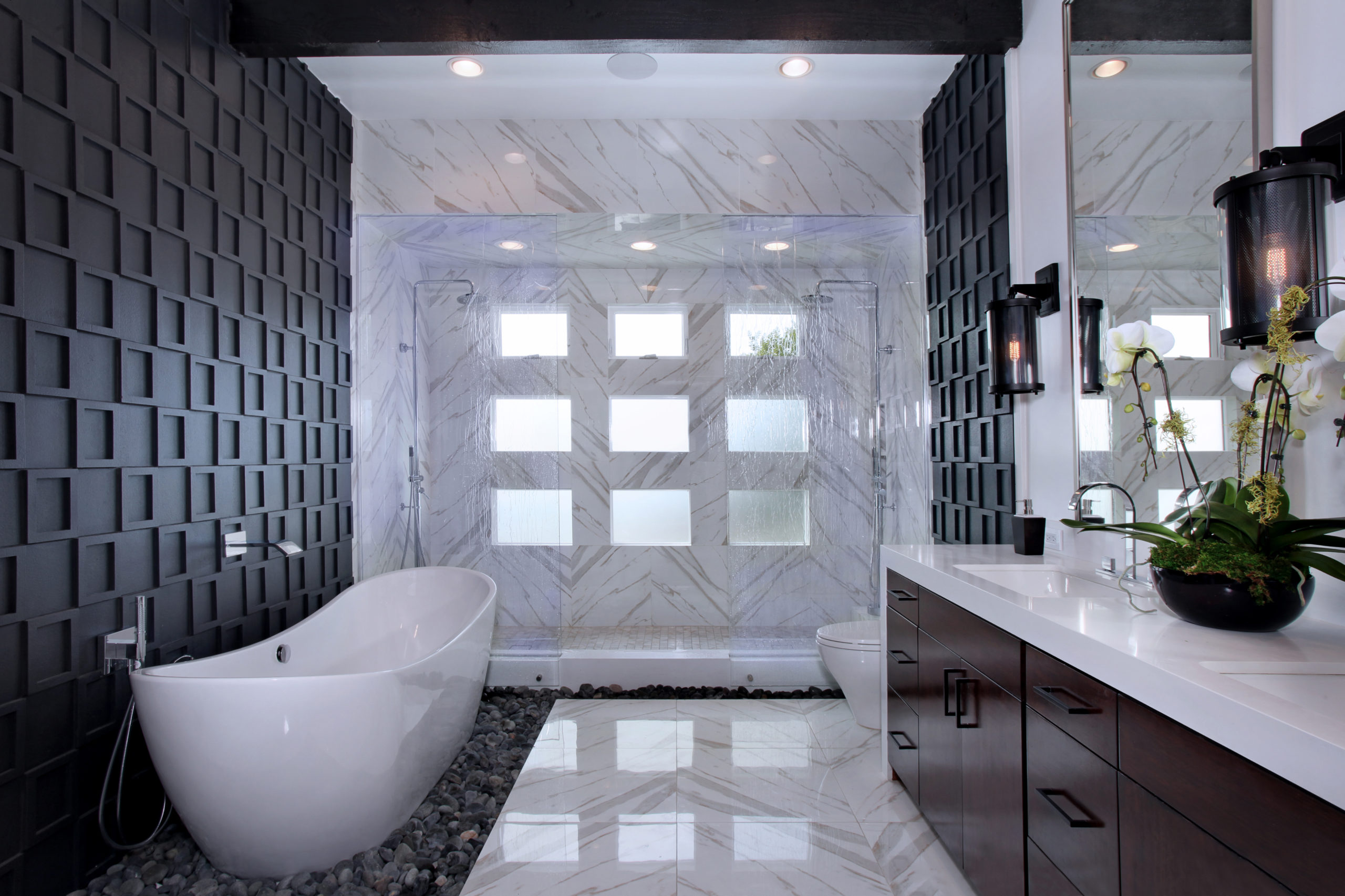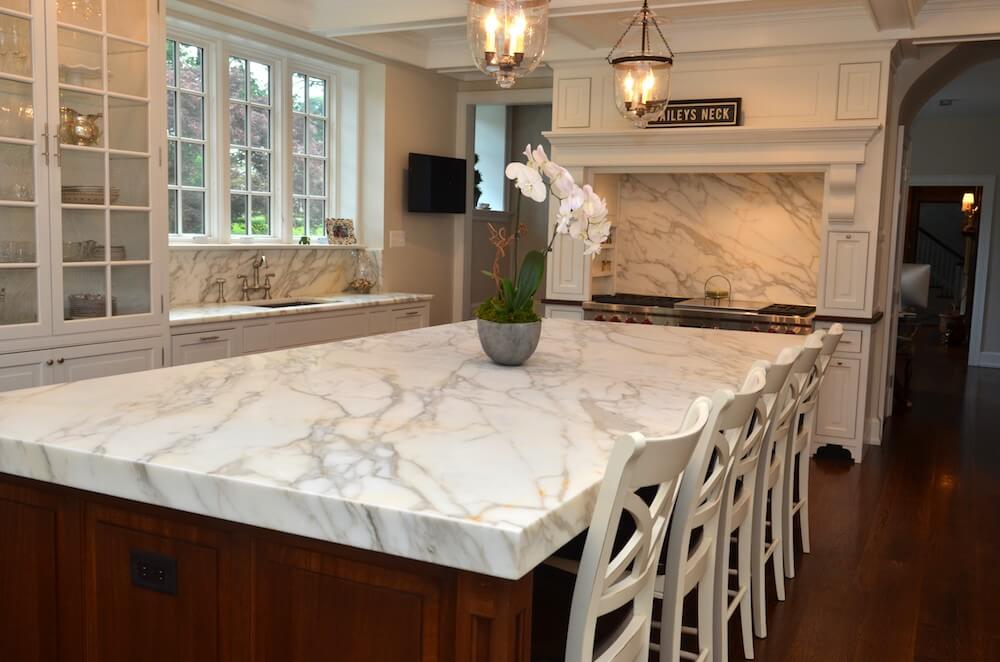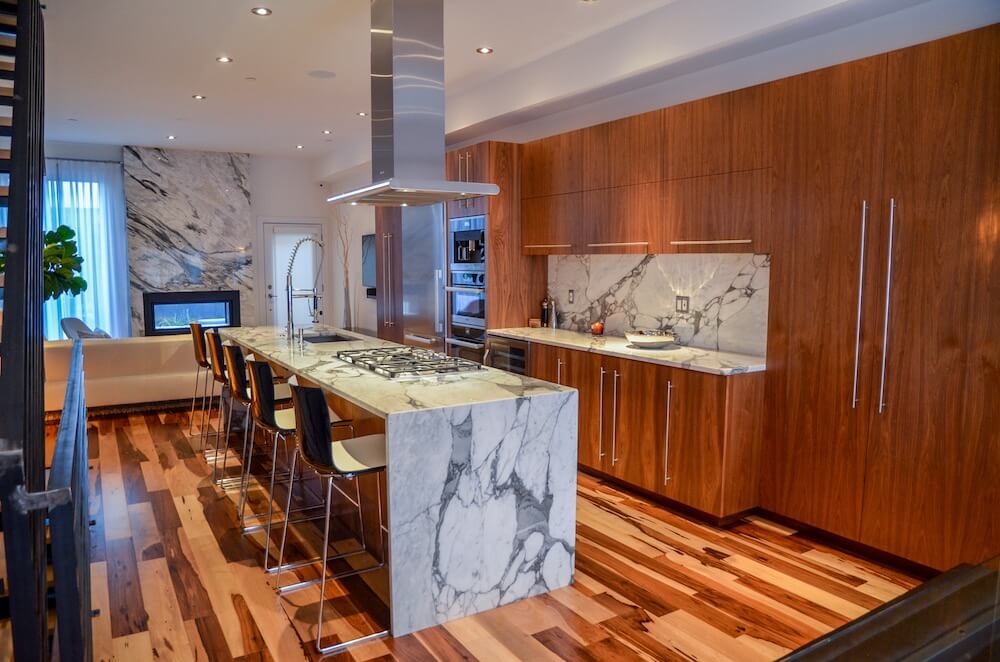Which Is Better For You? The Pros & Cons Of Granite And Quartz Countertops
A significant portion of planning your kitchen renovation is choosing countertop materials that meet your needs and budget. It is a huge decision, given its impact on the overall aesthetics and function of your kitchen. You can utilize many materials for unique kitchen countertops, but here, we’ll explore the most modern and practical options — granite vs. quartz countertops. Let’s take a closer look at each material’s pros and cons to help you decide which surface material is right for your lifestyle.
Pros, Cons & What To Know About Granite Countertops
Granite countertops are popular and in high demand due to their quality and durability. It is common for homeowners and design enthusiasts who prefer a solid stone material to choose granite for their countertops. These surfaces offer many unique colors and patterns as they come from pure, natural stone. The colors of granite range from earth tones to blues and greens and most often have a speckled appearance or wavelike design. Black tones tend to be the most popular color of granite on the market for kitchen countertops.
Granite slabs are a combination of interlocking mineral crystals, most commonly quartz and feldspar, that come from various quarries around the world. Each of the unique granite slabs we supply goes through a meticulous inspection and polishing process before they are ready for installation. Here are the pros and cons of granite countertops.
Pros Of Granite
Heat Resistance: Granite materials are known for their resistance to heat. You can even use them outdoors as these countertops can withstand extreme exposure to the sun without fading.
Nothing beats the real thing: Among natural surface materials like marble, granite is the most durable. Besides their aesthetic appeal, granite countertops tend to resist cracks and chips and are worthy investments that can last decades.
Cost: You get the beauty of a natural stone countertop for a slightly lower price. The prices between the two materials are close, with granite averaging around $50 per square foot. It depends on the quality and availability.
Cons Of Granite
Annual Maintenance: Maintaining your granite countertops requires you to spend a little more money and time to sustain its lifespan. Besides regular cleaning using soap and water, you should have your countertops resealed annually.
Harder to Clean: These stones are porous, which can make liquid spills harder to clean. They can also harbor bacteria, viruses, mold, and mildew if not properly cleaned.
Hardness: Granite is sturdy and the most durable of the natural stone surfaces. But compared to quartz, surfaces are a touch less resistant to chips, cracks, and scratches. Use caution when handling heavy or sharp objects near your granite countertops.
Pros, Cons & What To Know About Quartz Countertops
Quartz countertops are engineered stone that replicates natural stones and is made up of up to 90% quartz content. These surfaces are the result of crushed quartz combined with coloring pigment and bound by polymer resin. In contrast to granite’s color variations, quartz stones are more consistent.
We carry over 300 styles of quartz from top manufacturers. Color variations range from white to black and everything in-between. Quartz designs are inspired by the natural movement of granite, the understated or dramatic veining of marble, the industrial feel and look of concrete, and its own unique patterns that make quartz so popular. When it comes to appearance, people who want the freedom to customize the design of their kitchen and bathroom often prefer quartz. The following are the pros and cons of quartz countertops.
Pros Of Quartz
Hygienic: Quartz is completely nonporous resulting in countertops that are more hygienic. They resist mold, mildew, bacteria, and viruses. They are also water-resistant, outperforming granite when used in wet locations such as wet bars, bathrooms, and showers.
More durable than natural stones: Quartz is harder compared to granite and other natural stones making it more durable and less susceptible to chipping.
Low Maintenance: Unlike granite, you do not need annual resealing to maintain your countertops due to quartz’s nonporous nature. Surfaces will simply need regular cleaning with soap and water. Harder stains will require more labor and different cleaners, however.
Cons Of Quartz
Heat Resistance: Unlike its counterpart, quartz can get damaged by excessive heat. It is important to place heating pads under hot pots on the counter to avoid this damage.
Not Suitable Outdoors: Quartz countertops cannot perform well for outdoor installations. The surfaces cannot handle extreme sunlight exposure. Too much sun can result in discolorations and fading.
Costs More: Quartz countertops can cost you a bit more depending on quality (beware of low-quality quartz when shopping around). The price of quartz per square foot ranges from $65 to $100.
Granite vs. Quartz Countertops Resale Value
If you are looking to increase your home’s resale value, granite countertops can raise it by up to 25%. Granite materials offer timeless beauty, with variations of unique patterns that make them stand out. Lenders initially notice these as an indicator of the quality of your home.
Quartz is also gaining popularity in the real estate market. If you choose to remodel your countertops with quartz, you can see a 3% to 7% increase in resale value.
Quartz vs. Granite Countertops Consumer Report
Consumer Reports conducted stain-resistance tests to determine the differences between performances of granite and quartz materials in countertops. The rigorous experiment consisted of applying drops of kitchen ingredients to the countertops and left for 20 hours.
The final decision depends on you. Now that you have learned granite vs quartz countertops pros and cons, it all boils down to your personal preference. Visit our kitchen visualizer to pair your favorite countertop designs with cabinets, backsplashes, flooring, and appliance materials.





